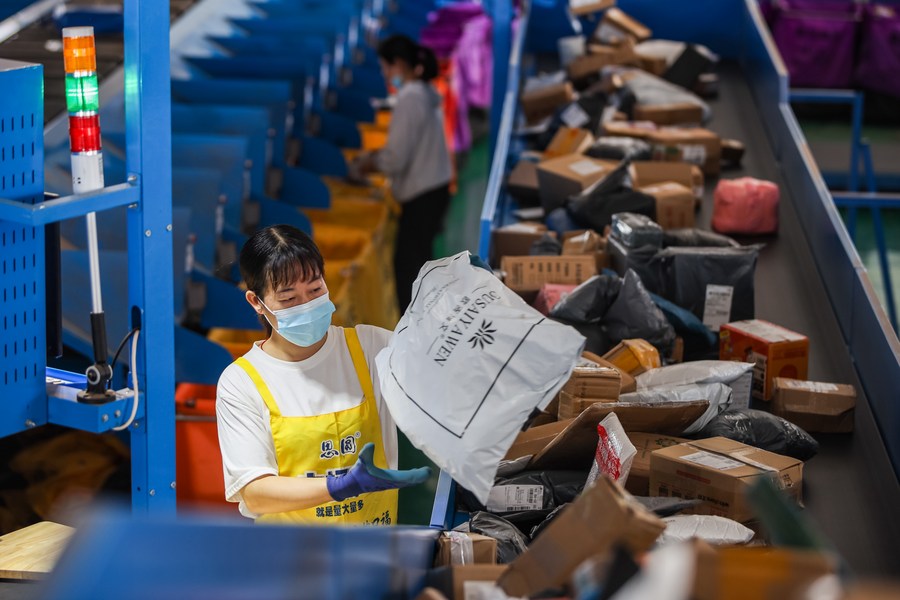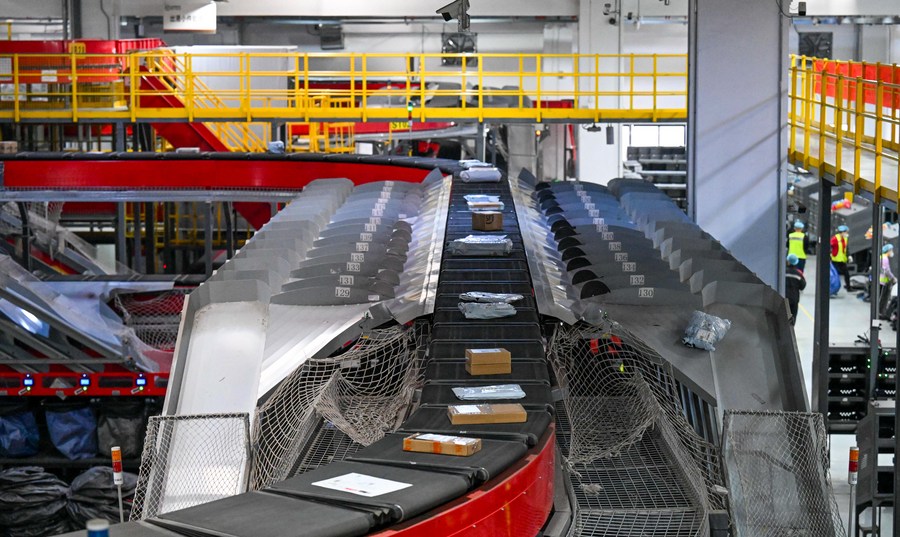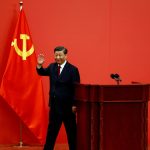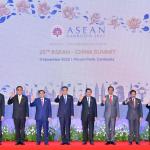China’s Singles’ Day shopping festival, a carnival for online shoppers, has turned out to be a bonanza for global brands, as more Chinese consumers choose to spend more on imported goods and services.
Initial sales numbers from major e-commerce platforms showed robust growth for overseas brands, and also revealed changes in the taste of Chinese consumers as they focus more on their health, hobbies and quality of life.
A bustling fete for buyers and sellers alike, the Singles’ Day shopping festival, also known as “Double 11” as it falls on Nov. 11, is proving to be another event besides the China International Import Expo (CIIE) to meet the country’s strong appetite for imports.
BONANZA FOR GLOBAL BRANDS
“‘Double 11’ is a big annual event for us. We cooperate with multiple e-commerce platforms, and various promotions are also in line with the shopping atmosphere of this festival,” said Li Xiao, chief executive of Greater China for New Zealand’s dairy giant a2 Milk.
“It’s truly an opportunity for us,” Li said, adding that the company’s sales in China have witnessed strong growth in recent years.
Data from Chinese e-commerce giant JD.com showed that on its first day of presales for this year’s shopping festival, the value of orders for products on its global brands platform surged 178 percent year on year.
Another major market player Tmall said that more than 1,600 new overseas brands participated in the “Double 11” festival for the first time, bringing thousands of limited editions of new products.

A staff member distributes parcels at the workshop of a logistics company in Lanshan County of Yongzhou City, central China’s Hunan Province, Nov. 10, 2022. (Photo by Peng Hua/Xinhua)
“Chinese consumers have a strong demand for imports, and global brands are paying more and more attention to the online shopping festival,” said Yu Huanhuan, marketing director of Tmall Global.
Despite global headwinds, China’s foreign trade has displayed strong resilience. Figures from China’s General Administration of Customs showed on Monday that trade in goods logged steady expansion in the first 10 months of this year, climbing 9.5 percent year on year to 34.62 trillion yuan (about 4.79 trillion U.S. dollars).
Consumption of imported goods, in the meantime, enjoyed a further boost from events like the just-concluded CIIE and the “Double 11” shopping festival.
The rising purchasing power of Chinese consumers is of growing significance for overseas brands.
Raviteja Neralla, consumer analyst of British consultant company GlobalData, told Xinhua that a series of factors have hampered British consumers’ disposable income and discretionary expenditure, which in turn threatened British brands’ domestic revenues.
“As a result, more multinational companies and startups in the UK are turning to overseas markets to recoup their losses. China’s domestic market with its considerable consumer spending power and appetite for luxury products makes a compelling proposition for these brands,” Neralla said.

Parcels are sorted automatically at a terminal of courier service provider Shunfeng Express in north China’s Tianjin, Nov. 9, 2022. (Xinhua/Sun Fanyue)
NEW MARKET TRENDS
During the shopping festival, French brand Decathlon’s world-first foldable inflatable kayak became a “popular product” on e-commerce platforms, with sales rising over 400 percent month-on-month.
This is a typical phenomenon amid changing market trends. Commodities such as sports gear and outdoor equipment that enhance people’s health and quality of life are gaining popularity among Chinese consumers.
A joint report released by Deloitte China and Tmall Global on Sunday showed that many new consumption trends are emerging. Buyers’ choices are becoming more diversified and personalized.
For example, on Tmall, new lifestyles for young people began to emerge, as products like land surfboards, cycling equipment and lure fishing gear enjoyed exceptional high sales growth.
Along with the new trends, shopping experience is also being upgraded and diversified.
E-commerce platforms including Tmall have become more dependent on livestreaming, virtual reality and other innovative technologies to offer consumers better shopping experiences.
Starting from 0:00 (1600 GMT) on Nov. 4, Tmall Global launched a 24-hour global simulcast, using digital tools to take Chinese consumers to classic shopping landmarks and origins of products. Following the live camera, consumers can “visit” the royal camel ranch in Dubai, and explore the origins of various products such as the Ethiopian coffee. They can also “cloud-visit” the Galeries Lafayette department store in Paris, and the headquarters of Italian coffee machine maker De’Longhi.
For example, Fortnum & Mason, a well-known British tea brand, broadcast live in its landmark London store to help its consumers experience the 300-year-old British afternoon tea. In order to reach Chinese consumers, the company also invited a Chinese-speaking internet influencer to introduce their products.

This photo taken on Dec. 13, 2021 shows an international freight train running on China-Laos Railway (Yiwu – Vientiane) departing from Yiwu West Railway Station in Yiwu, east China’s Zhejiang Province. (Photo by Gong Xianming/Xinhua)
MUTUAL APPEAL
As global brands gain popularity in China, Chinese products are also winning the heart of consumers worldwide.
Data from JD.com show that in “Double 11” presales, cloth shoes, embroidered shoes and other Chinese traditional cultural products are popular with overseas buyers, and the order value has increased by 400 percent year-on-year.
On overseas e-commerce platforms, sales of Chinese products are also booming. Christian Felix Verspohl, a German entrepreneur doing cross-border e-commerce in Yiwu, China, said business grew multiple times in the past few years.

This aerial photo taken on Nov. 10, 2022 shows trucks parking in a logistics park in Longli County, southwest China’s Guizhou Province. (Xinhua/Yang Wenbin)
Verspohl’s business mainly focuses on European and American e-commerce markets, such as Amazon in the United States, the Netherlands, Germany, the United Kingdom and France. Products are purchased in the Yiwu market and then sent to European and American warehouses before appearing on the e-commerce platform.
“Yiwu is a ‘world supermarket.’ Almost all Chinese suppliers have stores here, so we can see the samples and then sign contracts,” he told Xinhua.
Yiwu’s “market purchase + cross-border e-commerce” model is a convenient new mode of foreign trade, which provides standardized export supply chain services for small and fragmented international orders.
“In 2015, we only purchased 40-50 containers from Yiwu for export to Europe and the United States. Now we have 1,400-1,500 containers a year. Rapid development has taken place in my company,” said the German entrepreneur.
As China has set up 132 comprehensive pilot zones for cross-border e-commerce across the country, offering preferential policies in terms of tax, customs clearance and regulation, the flow of global products to China and Chinese products to the world is expected to continue its fast growth, giving a boost to global economic recovery.









